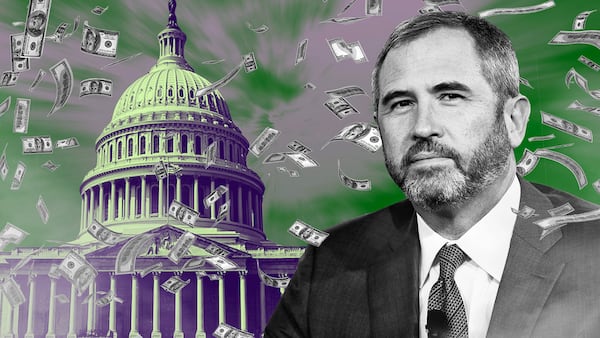- Central bank digital currencies have become a flashpoint in the culture wars and the object of post-pandemic conspiracy theories.
- But aren't there legitimate privacy worries about digital money issued by central banks? Two experts weigh in.
A version of this story appeared in our The Guidance newsletter. If you want to read this or our other newsletters before your friends do, don’t hesitate to sign up.
Hello! Joanna here with The Guidance, your guide to crypto regulation and policy.
Driving home from a lovely vacation in Snowdonia last week — that’s in Wales for those outside the UK — on the A5 near the Welsh border, I passed under a bridge emblazoned with graffiti.
Painted in large white letters: SAY NO TO CBDCS.
Someone was so riled up about digital payments that they had to express it … on a highway overpass in rural Shropshire.
Central bank digital currencies — like 5G, vaccines, and pandemic lockdowns — are the latest flashpoint for conspiracy theories, seamlessly melding into the culture wars.
READ MORE: Attacks on CBDCs highlight crypto’s new battleground
This mistrust seeped in perhaps from the US. Americans don’t approve of their central bank and are culturally suspicious of big government, so a tech that appears to allow the Federal Reserve insight into citizens’ spending is unsurprisingly anathema.
Republican US presidential hopefuls like Florida governor Ron DeSantis and Vivek Ramaswamy have tapped into this zeitgeist and amplified it.
Ramaswamy called CBDCs “the latest Trojan Horse of the Great Reset,” invoking a post-pandemic conspiracy theory.
This framing distracts from the reasonable concerns that ordinary people have with giving any government information about their financial lives.
It doesn’t help that central banks aren’t always great at communicating about it in a relatable way.
“Money — how it is created and controlled in modern economies — is a complex topic, and most people when they think about money are only interested in how they can get more of it,” Ryan Shea, a crypto economist at trading platform Trakx, told DL News’ Adam Morgan McCarthy recently.
So engaging the public is a “serious challenge” for lawmakers and political leaders.
Adam and I spoke to advocates on the forefront of debate around CBDCs to cut through the conspiracist noise.
NOW READ: Swedish CBDC head: The state doesn’t care how people pay for things
Shea is firmly in the anti-CBDC camp. CBDCs, unlike cash, aren’t anonymous.
If you pay in cash, neither your government nor your bank will ever know that you went to Krispy Kreme every day last week. But CBDCs will have to come with verification layers to prevent financial crime.
And as cryptocurrencies, they are programmable with smart contracts.
“Programmable money that can’t be held anonymously gives policymakers absolute control over the money supply,” Shea said.
Worse, CBDCs could give the government the ability to completely shut out people or organisations they consider undesirable from the monetary system.
In the pro-CBDC camp: Jannah Patchay, policy lead at the Digital Pound Foundation.
NOW READ: CBDCs are ‘1984 on steroids’ critics warn as supporters say Britcoin will save the economy
Scepticism around CBDCs is based on a misunderstanding of how they’re designed, at least in democratic countries, Patchay said.
A well-designed CBDC can respect privacy, with controls and safeguards built in at multiple levels.
That includes the design of the tech itself, the legal framework, and market structure that does not allow the central bank to have direct access to accounts or wallet transaction data.
The Bank of International Settlements says that 93% of its members have at least started thinking about developing CBDCs. So this is a debate that will rage on.
For more on this topic, you can read our coverage in DL News.
Do you have any opinions, questions or tips about CBDCs, crypto regulation or policy? Email me at joanna@dlnews.com or find me on Telegram @joannallama.



